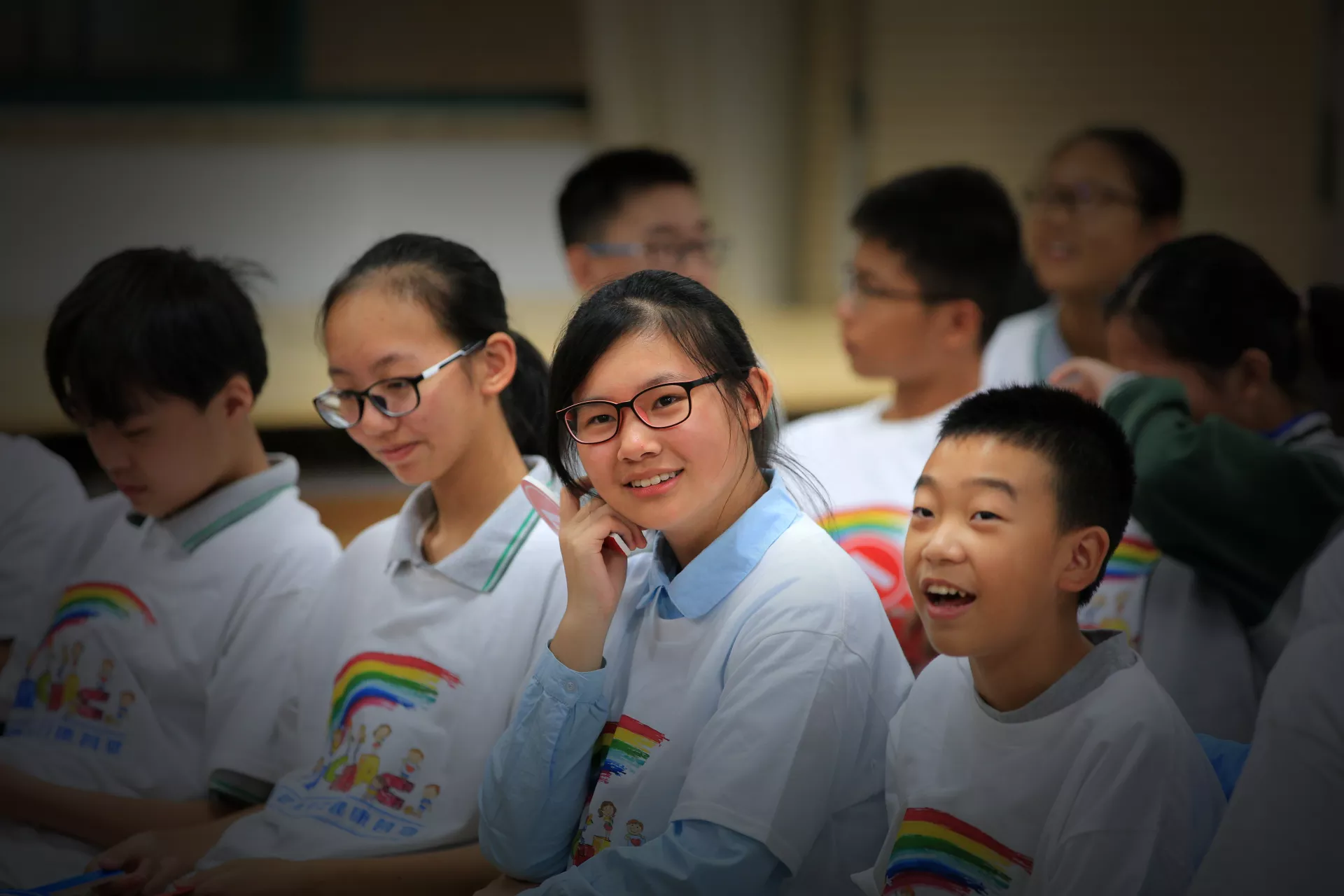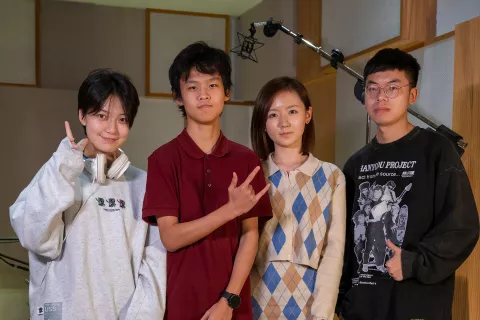Investing in our Children’s Mental Well-being
Cynthia McCaffrey, UNICEF Representative to China, contributed an article on children's mental well-being to Xinhua on June 1st, 2021.

- Available in:
- 中文
- English
June 1st is a special day for children: it is both International Children's Day and the first day of parenting month, when UNICEF focuses on equipping parents with the skills to protect and promote every child's health, education and emotional well-being. This year, we are starting conversations about mental health -- an issue that is affecting children worldwide.
An estimated one in five of the world's children and adolescents experience mental health challenges. The consequences of not addressing adolescent mental health conditions extend to adulthood, impairing physical and mental health and limiting opportunities to lead fulfilling lives as adults. In China, poor mental health is associated with the largest burden of disease among adolescents.
The reasons for this situation are complex and include the increased pressure our children face to compete and succeed in academics and extracurricular activities. Parents, who want to see their children succeed, can be unaware of the effects of these pressures or unsure of how to best support their children. An estimated 30 million children under 17 years of age recently reported that they are struggling with emotional or behavioural problems. The 'Report on National Mental Health Development in China (2019-2020)', provides data that is hard to ignore - almost one in four (24.6 per cent) adolescents reported feeling mild or severe depression.
The COVID-19 pandemic has compounded some of these problems, leading children and young adults to feel more isolated, more anxious, and more concerned about their schoolwork and future careers.
In China, progress has been steady, with the launch of policies such as the 'Opinions on Strengthening Mental Health Care Services', issued by 22 ministries in 2016. This document clarified responsibilities of government stakeholders and relevant sectors and requested education facilities to strengthen mental health education to help children be more positive and resilient. In 2019, the 'Mental Health Action Plan for Children and Adolescents (2019-2022)' was launched with support from multiple ministries. This Plan aims to improve child and adolescent mental health by creating an enabling environment, with multisectoral services and interventions.
Even with these forward-looking policies, challenges persist. All of us - parents, teachers, health care and social workers - have work to do in promoting well-being and mitigating risks that lead to poor mental health. This includes supporting family, school and community-based activities that can create peer networks and help our children build resilience and capacity to cope with the pressures of school and adolescence. We can and must strengthen the quality of mental health services, with trained personnel and standards for services including those provided in schools.
To tackle these challenges, UNICEF is working with government and other partners towards three objectives. The first is for children's mental health care services to be fully integrated into the primary health care system, so that counselling and care services to promote mental health and well-being are universally available to all children. The government's 'Mental Health Action Plan for Children and Adolescents' has a target to establish a service network involving schools, community and health facilities, and proposes the inclusion of counselling services into the primary health care system, which UNICEF strongly supports.
It is not enough, however, to make these services available. UNICEF's second objective is to make sure that when additional treatment or medical care is needed, psychological services are covered by universal health insurance, so that the access to care is equally affordable for families.
Third, UNICEF is working to empower adolescents and young people to develop skills to help each other. This means increasing awareness of mental issues among their peers and reducing stigma. We are also sharing information on mental health services, because even if services are available, and affordable, children and young people may avoid seeking mental health care services if they fear that they will be teased, bullied, or ostracized for doing so. We need everyone: parents, teachers, friends, families, health workers and adolescents themselves to be aware that there is no shame in seeking mental health services. We all know that often adolescents listen to their peers the most. On June 1st, at the start of the Parenting Month, let us collectively empower young people to help each other get the mental health services they need.
Children today face rapidly changing pressures and challenges when it comes to mental health. By coming together - parents, caregivers, teachers, and the government - we can support as well as engage children and youth in preventing serious mental health issues. Giving every child the best possible start to healthy, productive and fulfilled lives requires all of us to act now.
(Cynthia McCaffrey, UNICEF Representative to China)
Source: Xinhuanet





